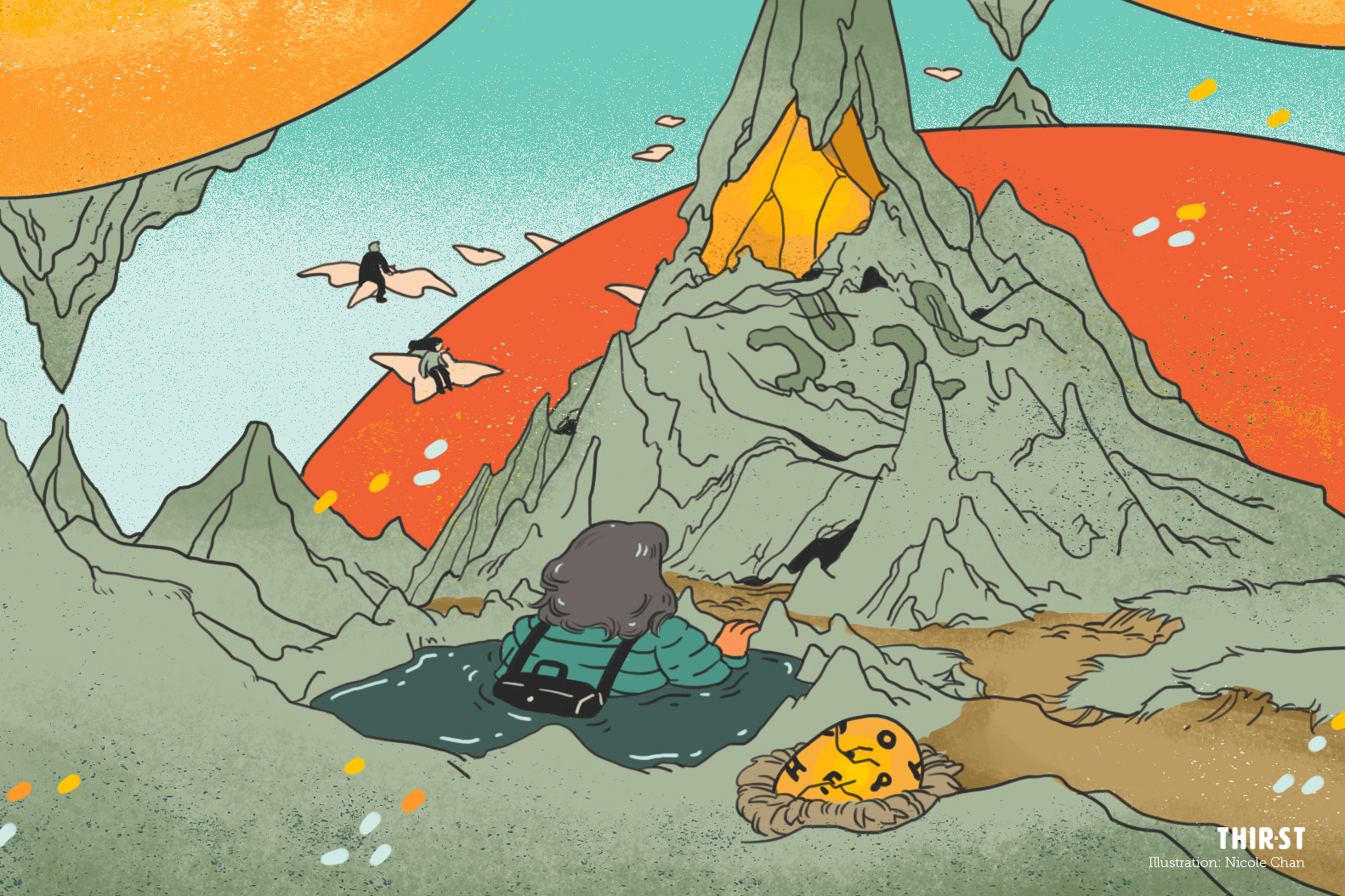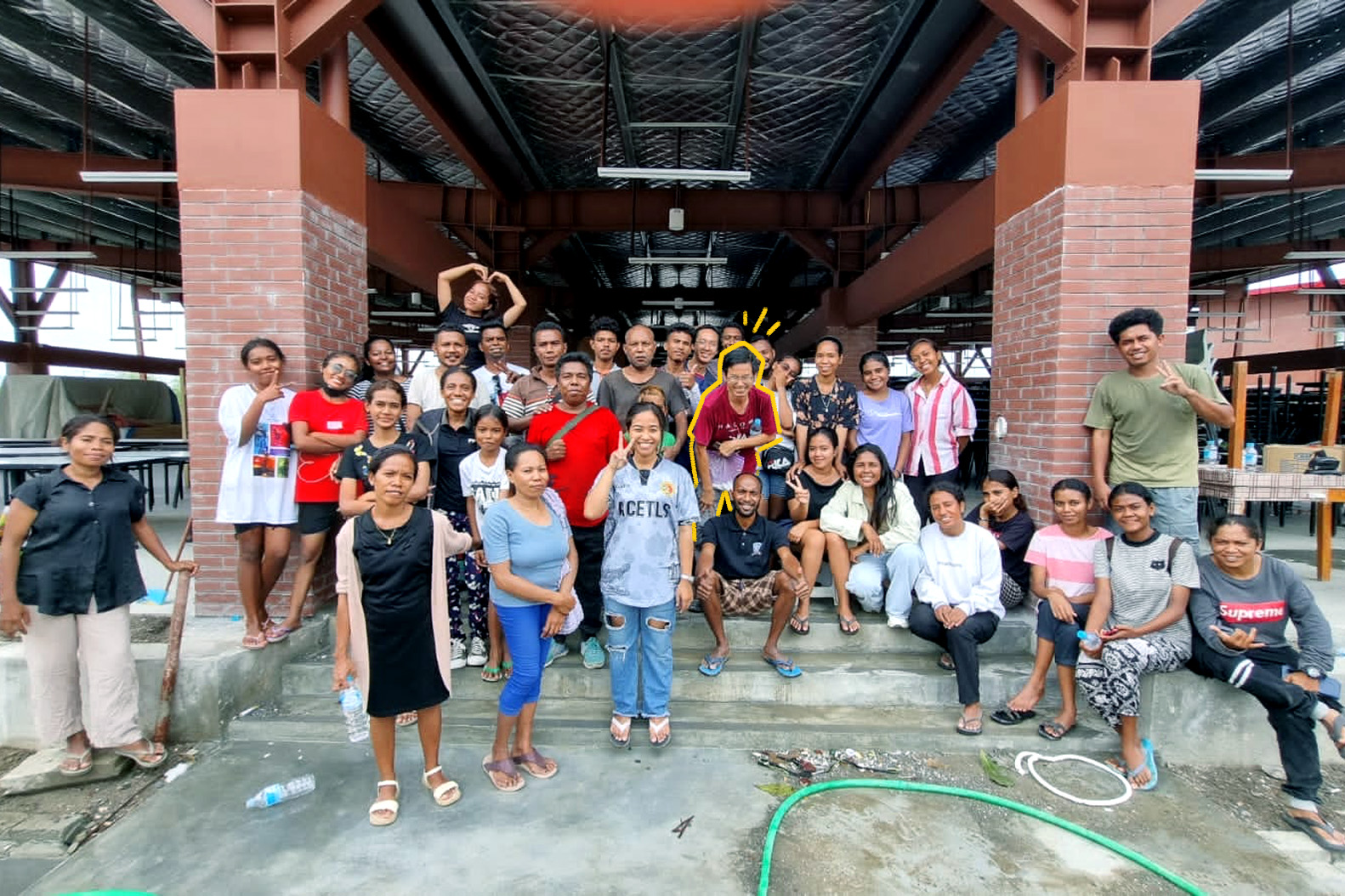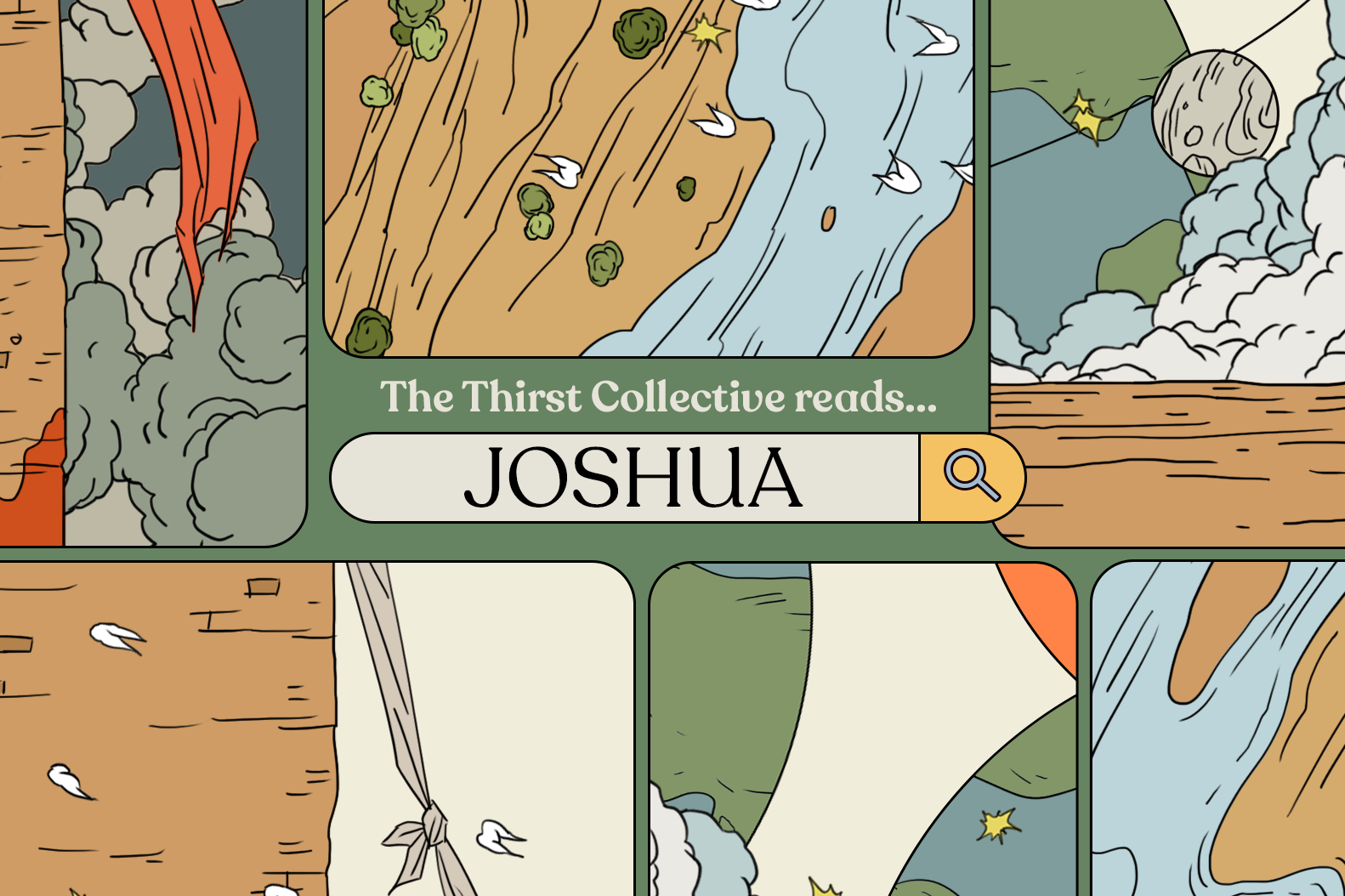Dates, much like the turn of a new year, are honestly arbitrary to the human mind – the last day of 2019 will probably feel no different from the first day of a whole new decade.
But I believe we were made to track the days, months and years. Dates have always meant something to God, who Himself lives outside time and has no need for it, so they should mean something to us, a language we’ve been given to mark His movements big and small – in our lives, in the Church, in this generation.
“And God said, ‘Let there be lights in the vault of the sky to separate the day from the night, and let them serve as signs to mark sacred times, and days and years…'” (Genesis 1:14)
Right at the beginning, God spoke of days and years and “sacred times” or seasons, in other translations of the Bible. Jesus echoed this, speaking of coming hours that would mark the course of humanity (John 4:23). King David fought alongside men like the sons of Issachar who “understood the times” and thus were wise in what was best for the nation (1 Chronicles 12:32).
As we begin 2020, what season are you finding yourself in?
A DAMAGED HOPE
Perhaps like me, you’re crawling across the decade’s threshold with the wind knocked quite out of you, bruised by the fiery trials of life that still somehow manage to surprise (1 Peter 4:12). You want to hope for more, but the muscle has been greatly weakened.
When I suddenly lost half my face to Bell’s Palsy, I had to wrestle with the possibility that this could have been the rest of my story. The autoimmune condition almost completely paralysed my right facial muscles, and although most patients are said to recover, there is no guarantee of it.
My face showed minute signs of improvement day by day – but the damage had been done. I still couldn’t drink or gargle without water leaking out on the right side of my lips. And I couldn’t close my right eyelid fully in a blink. It had been the first thing to go when Bell’s hit, and now it seemed to be the hardest to get back. And how does one even start willing your eye to blink normally again?
Around this time, about two weeks since my diagnosis, a physiotherapist in my cell group texted me to ask how I was doing. She then offered to meet up to teach me some facial exercises as she had seen several cases of Bell’s in the hospital she worked at.
It was in these simple steps of a nightly routine that I received the precious gift of a lesson on how to relearn what seems impossibly lost.
REHAB FOR HOPE
1. Remind your muscles where they can go
Just like muscle memory, there is also the opposite: muscle amnesia. And since my facial muscles weren’t going to just bounce back to their old selves after Bell’s, I was going to have to teach them how much they once could do.
This meant stretching my lip and eye muscles to the “end of their range”, which involved using my hands to force or “actively assist” my mouth open to its widest and then puckering my lips in a pout; same with the eyes, from my eyelids to my eyebrows. It was all about practising very exaggerated expressions and movements in hopes that the muscles would start to remember.
It says in Proverbs 13:12 that “hope deferred makes the heart sick”. In The Message version, this deferred hope is translated as “unrelenting disappointment”. In the face of unrelenting disappointment, we know too well that our heart’s ability to hope can become severely impaired.
The solution seems too simple and almost silly, but we’ll just have to show our hope how much it once could do. In the words of Romans 4:18, we have to hope “against all hope” (NIV) or hope “even when there (is) no reason for hope” (NLT), when it confounds logic to try again or trust God for one moment longer.
This might require some “active assistance” and borrowed courage from your community in the form of loving counsel and prayer, but this is what the Church is for. Trust that in due time, as we stretch our hope muscles as far as they once could go with a dose of audacious faith, the heart will start to remember.
2. Repetition and discipline is key
Open, close, open, close. Index finger on my right eyelid, I pulled it open and pushed it shut over and over in one of the many reps I had to do for my blink rehab. Ah, ee, oo, eh, oh. Mouth exercises repeated until my cheeks couldn’t take it anymore. Relearning the moves didn’t just look inane, it was also highly mundane.
But the muscles weren’t going to regain memory or strength with one stretch or one rep, not even in one round of physiotherapy. I was going to have to keep showing up every day at my mirror for an extended period of repeated actions if I wanted to give my muscles a fighting chance to recover. 10 times. 30 times. 50 times. It was HIIT for the face.
The secret of physiotherapy lies in moving through the pain, not sitting in it.
Hoping again after a season of brokenness can feel like the hardest and most counterintuitive thing to do and keep doing, especially when trauma lies so closely in its wake. The inertia that keeps you in that mental place of pain, that keeps you going back to the moment everything fell apart, is enough to wear down the strongest spirits.
If nothing is going to change immediately or for certain, why should I still bother hoping?
There will always be good and bad days in rehab, but the secret of physiotherapy lies in moving through the pain, not sitting in it. We have to keep showing up with hope – even if painful memories are still fresh and everything hurts – if we want to give our hearts a fighting chance to relearn it.
Romans 5:3-5 (ESV) gives us some sense for the suffering “… we rejoice in our sufferings, knowing that suffering produces endurance, and endurance produces character, and character produces hope, and hope does not put us to shame, because God’s love has been poured into our hearts…”
Hope that trusts in God’s perfect love for us will not “put us to shame”. It will “not disappoint” (NKJV). We can, and we must, keep hoping in Him.
3. Relax and be patient in the waiting
The last thing my physiotherapist taught me was to be gentle on my muscles. After all the repetitive stretching and assisted actions, I needed to massage them and let them rest if they were tired. Doing more than the recommended reps in a sitting wasn’t going to revive them any faster.
For impatient people like myself, physio was a real test of the willpower to wait. When you’re used to solving problems as they sprout and prefer ripping the Band-Aid to coaxing it off, having to do nothing is pretty much torture.
Above actively hoping, we must actively surrender.
It was in this new helplessness that I could only bank on one Person to work while I was waiting: every night I would hold my face and pray over my muscles to come back alive. I had no control over their return, and not even physio could promise a sure recovery. But I knew the Holy Spirit, the fullness of God living within me, had all the power needed for the resurrection I desired.
I did not know what His plans for my condition were, if having a face half-taken by Bell’s was how He intended to write my next chapter or if full healing awaited me. Either way, I told Him, I was going to keep following and serving Him, believing He knew what He was doing and that that was always best. This meant I would pray for healing and choose to trust His ultimate decision for my life.
There is much anxiety to be had in the face of prolonged uncertainty, and we don’t have to pretend that the waiting is easy, before God or man. But above actively hoping, we must actively surrender. Like David writes in the Psalm 131: “I have calmed and quieted myself” as he exhorts the nation to “wait with hope” (MSG).
We may not know how or when the story will turn, but we can rest knowing God will be right there – Immanuel – and that is our true hope.
I DARE YOU TO HOPE
Christmas was silent and tearful for me this year. On the eve, as I stared at this very space, willing my final words for 2019 to appear that they may greet you on the first day of 2020, I could already feel a strange cold in my bones. By evening, a viral fever had effectively cancelled any celebrations for the rest of the week.
Not that I really had a problem with that. Maybe like some of you, I simply had nothing left within to ring in the yuletide joy. No pretty lights or words, no displays or decorations able to mask a life laid bare by a winter that refuses to leave. It has not been an easy season to weather. The virus was just the final blow.
But on the eve of the last day of the decade, with the fever finally gone and my strength returning, I cannot help but contemplate the beauty of recovery once again. How is it that, regardless of severity, we believe deep inside that wholeness can return to our bodies every time? Somehow it will.
Here’s how my Bell’s story turned out: Over the few weeks of physio, I saw my smile come back and my blinking eventually stabilise. It’s not like I could have willed it to. Somehow it did.
Even if you have yet to see the recovery of sight to the blind, hearing to the deaf or walking to the crippled, we have seen healing built into our own bodies. We can believe that wholeness can return. We can dare to hope, even if it’s against all hope, even if every fibre in our body is screaming at the risk of further disappointment, even if God no longer seems to be working.
Because what if… He is? What if… the story is just about to turn?
One of the pieces I enjoyed editing this Christmas reminded me of the 400 years of silence between the Old Testament and New Testament, where God stopped speaking through His prophets. It made me think: What a picture of an endless winter that must have been – cold, dark, empty, dead.
But we see at the end of that 400 years a Light (John 8:12). A God who breaks the silence with a Saviour. Salvation from the eternal winter of the soul. God comes back, or rather He starts the final Act. Healing arrived on the shores of a broken world. We were only in the middle of the story.
I know we’re at the dawn of a new decade, friends, but maybe we’re already in the middle of a God-marked season. I believe that the arrival of the 2020s means something larger than we can imagine. Give yourself a chance to breathe it in and feel the weight of a sacred time at hand.
Have a whole, new, blessed year. ❤️🎉









